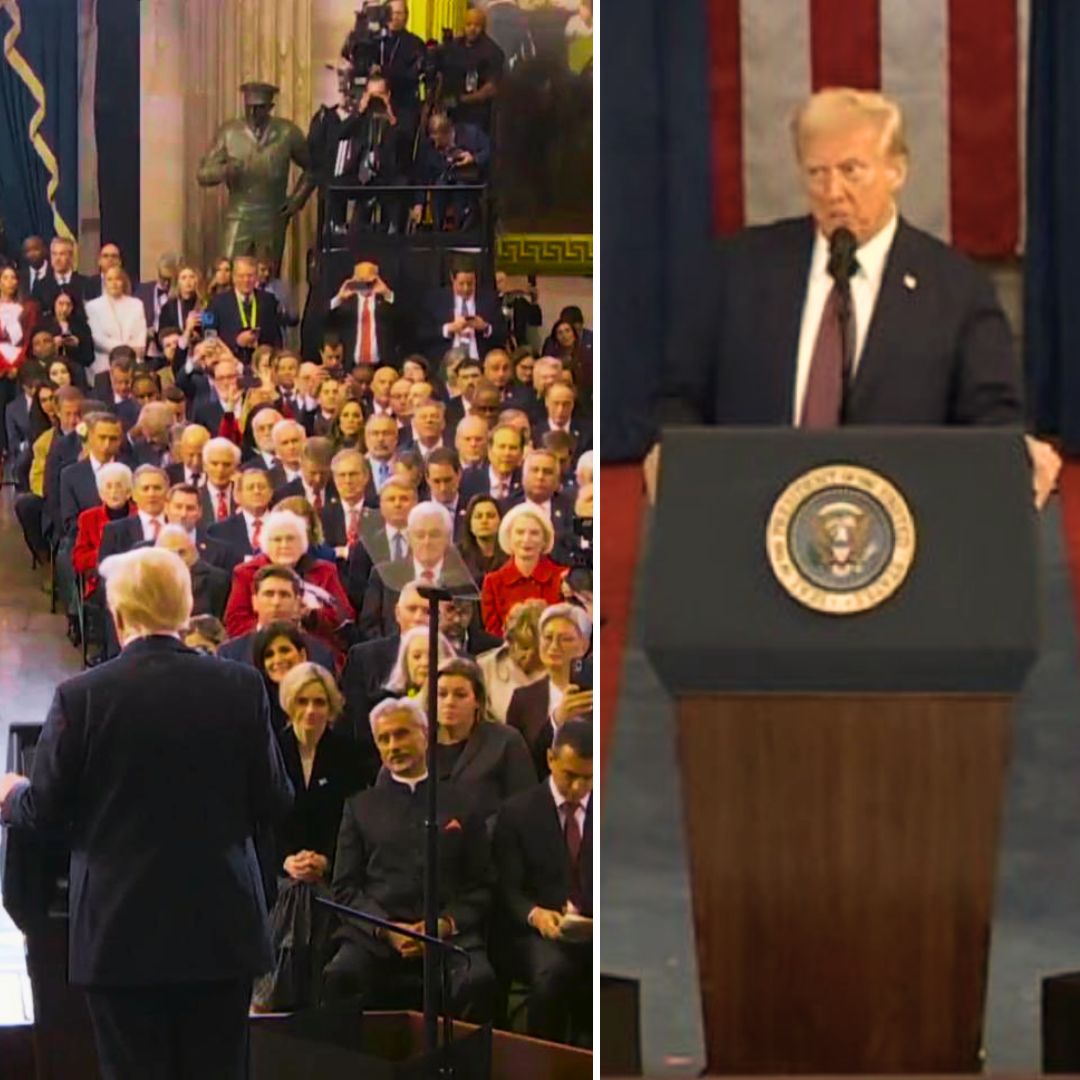On January 20, 2025, Donald Trump was inaugurated as the 47th President of the United States, marking a historic return to office after a stunning political comeback. The ceremony, held indoors at the Capitol Rotunda due to freezing temperatures, was attended by several notable global figures, including India’s External Affairs Minister Dr. S. Jaishankar, who represented Prime Minister Narendra Modi.
Tech billionaire Elon Musk also made headlines for his prominent support of Trump’s vision for space exploration. Following his oath of office, Trump signed a series of executive orders that have already sparked significant debate.
India’s Representation at the Inauguration
Dr. S. Jaishankar’s attendance at Trump’s inauguration highlighted India’s growing role in international diplomacy. Representing Prime Minister Modi as a special envoy, Jaishankar expressed on social media that it was an “honour” to be part of such a historic occasion. Sitting alongside global leaders from countries like China and Italy, Jaishankar reinforced India’s strategic importance on the world stage.
The ceremony began at 11:30 a.m. EST (10:00 p.m. IST) with Chief Justice John Roberts administering the presidential oath to Trump and Associate Justice Brett Kavanaugh swearing in Vice President JD Vance. Despite being relocated indoors due to harsh weather conditions, the event retained its grandeur and concluded with Trump’s inaugural address, where he outlined his vision for his second term.
Elon Musk’s Prominent Role
Elon Musk was another key figure at the inauguration, drawing attention for his enthusiastic support of Trump’s space exploration ambitions. Taking a prominent seat during the ceremony, Musk praised Trump’s commitment to advancing space technology, including plans to “launch American astronauts who will plant our flag on Mars.” Musk has been appointed co-leader of the newly established Department of Government Efficiency, tasked with streamlining federal bureaucracy and reducing government spending.
Later in the day, Musk addressed supporters at Capital One Arena in Washington DC, calling the inauguration a “victory for humanity.” He reaffirmed his commitment to collaborating with Trump’s administration on ambitious projects aimed at improving technological innovation and governance efficiency.
Trump’s Sweeping Executive Orders
Within hours of taking office, Trump signed several executive orders that have already garnered widespread attention:
- Withdrawal from WHO: Trump formally announced the U.S.’s exit from the World Health Organization (WHO), citing concerns over its handling of global health crises.
- Pardons for January 6 Rioters: He issued pardons for approximately 1,500 individuals involved in the January 6 Capitol riots.
- Environmental Rollbacks: Trump signed orders withdrawing from the Paris Climate Agreement and rolling back environmental regulations to boost fossil fuel production.
- Two-Gender Policy: Trump reinstated a two-gender policy that officially recognises only male and female genders in federal documentation.
- Birthright Citizenship Executive Order: In a controversial move, Trump signed an executive order aimed at ending birthright citizenship in the United States. This policy change would revoke automatic citizenship granted to children born in the U.S. to non-citizen parents. Legal experts predict significant challenges ahead due to its potential conflict with the 14th Amendment of the U.S. Constitution.
The two-gender policy has significant implications across various sectors:
- Federal Documentation: Nonbinary and transgender individuals will no longer be able to update gender markers on official documents like passports.
- Title IX Protections: The order directs federal agencies to reassess how they apply protections under Title IX laws related to sex discrimination.
- Housing and Healthcare: Transgender individuals in federal prisons will be housed based on their sex assigned at birth, while gender-affirming care will be reevaluated.
While supporters argue that this policy reaffirms traditional gender categories, critics contend it erases nonbinary identities and increases discrimination against transgender individuals.
Legal and Social Reactions
Legal experts predict that some of Trump’s executive orders will face scrutiny. The two-gender policy and the birthright citizenship order are expected to encounter legal challenges due to their potential conflict with existing precedents like Zzyym, which mandated accurate gender markers for nonbinary individuals on passports. Advocacy groups such as Lambda Legal have expressed strong opposition to these policies, calling them “a step backward for human rights.”
Reactions from affected individuals have been equally poignant. Many transgender and nonbinary people have voiced concerns about how these policies could impact their daily lives. One activist remarked, “This executive order sends a message that our identities are not valid. It feels like a step backward in our fight for equality.”
Despite these challenges, advocacy groups are preparing for potential legal battles while continuing to push for broader conversations about gender identity and inclusivity in society.
A great honour to represent India at the inauguration ceremony of @POTUS President Donald J Trump and @VP Vice President JD Vance in Washington DC today.
— Dr. S. Jaishankar (@DrSJaishankar) January 20, 2025
🇮🇳 🇺🇸 pic.twitter.com/tbmAUbvd1r










